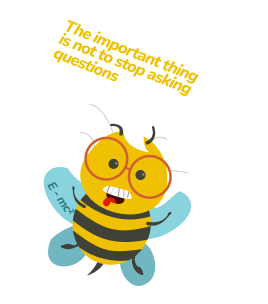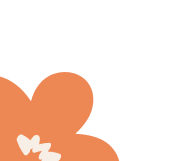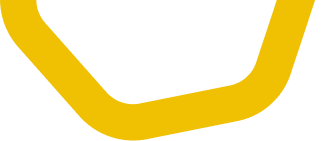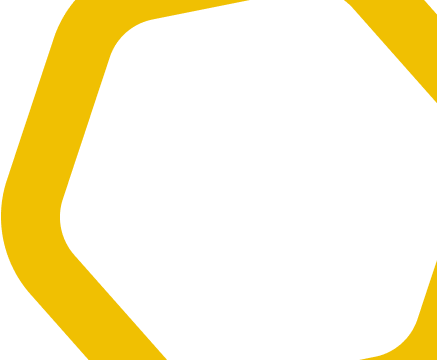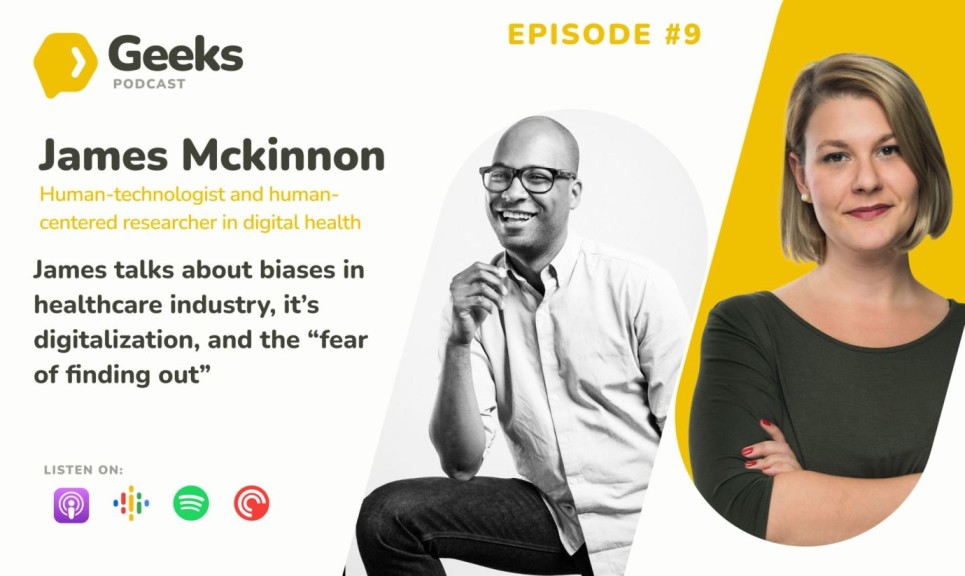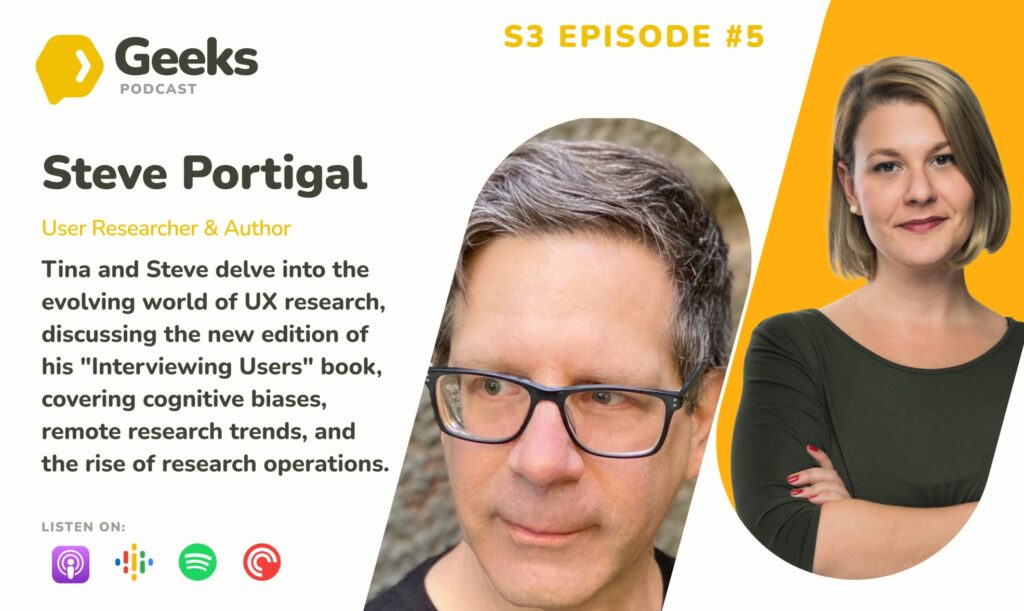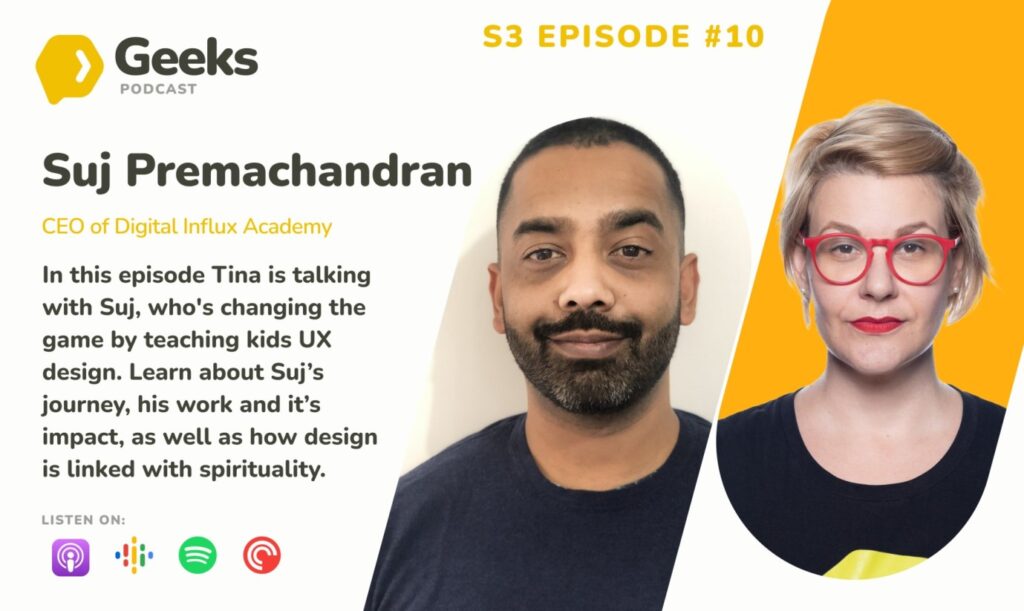👉 Link to the webinar with Vitaly Friedman.
Episode highlights
- 00:03:06 – Tina’s journey from advertising to UX research
- 00:09:37 – The evolution of the UX Research Geeks podcast
- 00:13:05 – Interviewing, Listening, and Learning
- 00:15:09 – Earning Trust in B2B Research
- 00:17:58 – Structuring Research Findings
- 00:21:00 – The Power of Aha Moments
- 00:24:44 – Structuring Knowledge
- 00:26:53 – Start with Research Ops
- 00:29:52 – Cooks vs. Restaurant Managers
- 00:37:52 – Adapting Existing Research Infrastructure
- 00:44:52 – Finding the Right Problem: It Takes Time (and a Bit of Annoyance)
About our guest
Tina Lickova is a digital product expert specializing in research and product strategy. She helps clients to discover new business opportunities as well optimize existing products. She is also a host of UXR Geeks podcast and an aspiring product manager.
Podcast transcript
[00:00:00] Tina Ličková:
Welcome to UX Research Geeks, where we geek out with researchers from all around the world on topics they are passionate about. I’m your host Tina Ličková, a researcher and a strategist, and this podcast is brought to you by UXtweak, an all-in-one UX research tool.
Hello, UXR geeks. This is Tina speaking and you are listening to a special episode of a webinar that we did with my colleague Mark a few weeks ago, and you will hear me summarizing some episodes on what I personally learned as well, how did I applied it into my practice, and at the end of the episode is a little bit of sharing my knowledge and my perspective on research.
So I hope you have. As much fun as we did, and this is worth a listen. Tune in.
[00:01:06] Marek Štrba: Today our webinar will be with our colleague Tina, who is our podcast host, and this is basically a celebration of the. Anniversary 50th episode, and we’ll do a roundup of the biggest learnings that we had for the episodes.
How it all started. It was an interesting, we actually reached out to Tina, to me, interviewed by us, and she suggested that why not start a podcast instead of the interview? We launched the first episode back in 2022. Left Tina being the host of the podcast, and uh, rest just came along naturally. So where are we now with the podcast with almost 27,000.
Those plays more than 50 plus awesome guests because some of the episodes had multiple guests. We are reaching 3000 Spotify followers right now, and our listeners are tuning in from 120 different countries. So that’s just few numbers and where we stand now. And it’s my pleasure to invite Tina to join me.
Hi Tina. How are you doing today?
[00:02:31] Tina Ličková: Hello? Hello. I am in the middle of moving, or it’s the first phase. So what you can see, and that is good, is my apartment being a complete mess, and yeah, that’s the state I’m in.
[00:02:46] Marek Štrba: Busy, busy time, right? Yeah. I’m sure that most of our viewers know who you are, but for those who haven’t had the luck to meet you so far, who are you?
Tina? How did you get into UX and what are some facts that people should know about you if they want to learn more about you?
[00:03:06] Tina Ličková: Thank you. I get it back for asking people the philosophical question in the beginning of every episode. Who are you? Tell me more. So, my name is Tina, coming from the name Martina, which is by the way, given to the God of war Mars.
Interesting for all the Martin there. But I started in UX by of course, accident. I was working in advertising. And it was back in the time where Facebook applications were getting higher in usage and my clients didn’t really understand, or some of them how it works. So I started to build the first wire frames and from there I was like, oh wow, okay.
This is interesting. But then I found a lot okay there. It’s also the user side where people. Need to be acknowledged in building software or websites or in general. And I thought, I’m going to be a designer. I didn’t because there are way more talented people out there than I am in design. But as coming from the corner of political science, I studied political science, I found out there is research and it was the typical story of you do your first user testing and you are like, this is what people are going to pay me for.
Wow. And I, yeah, since then I’m doing it and I think I started to specialize on research in the last seven or eight years. Uh, when I moved to Germany, when I worked for banks. So this is probably the story now I’m freelancing, working for clients in science and, uh, finance. That’s the summary before I start to blabber off somewhere into space.
[00:04:47] Marek Štrba: You mentioned that starting with the UX research was a, a great feeling that, oh, this is something that I can be paid for. It’s so much fun, isn’t it, learning about people, how they interact with UIs and what it tells you about them and how they view the world through their eyes, basically.
[00:05:03] Tina Ličková: Yeah. And I was just amazed.
You go there with your hypothesis, you do the thing with your team where you think, okay, what are going to be the use cases that we wanna test? What are going, what is the user scenario going to be? And then you figure out even going into more deep dive research where it’s uh, more about the psychological side, that people tend to be way more different than you think.
And that’s just amazing thing about the job.
[00:05:30] Marek Štrba: And some people get upset when their hypothesis are not approved or, or are not true in the end, but I think that’s, uh, part of the fun, realizing that your initial thoughts went a little bit off because in the end, there are quirks about people, which some are not as easy to see.
[00:05:48] Tina Ličková: Yeah, I don’t know if you have the same feeling, but sometimes when. I have all hypothesis or most of them verify. I’m like bored. But I love, especially the fact when it’s like we verify a hypothesis partially, but there is a big but yeah. And that’s where I like like to surprise clients or stakeholders.
Yeah, you were right, but not as much because, yeah.
[00:06:12] Marek Štrba: So moving on to the Uxr geeks, I think that people are really interested in learning more about how the. Guests are selected and the topics which are discussed because the podcasts are about the guests, right?
[00:06:30] Tina Ličková: Yeah. About the topics too. We do have kind of some fantasies or goals.
What do we wanna maybe acknowledge in a year or in the next month? But we usually ask. People, the guests, what do you wanna talk about? My question is always when we have kickoffs, what are you passionate about when it comes to UX research? And initially when we started, it wasn’t really. We were really set broadly, I would say, when it comes to topics.
We didn’t have focus on something special, and I was very much also flirting with having product managers or designers also, because there are many other podcasts about UX research and it’s a niche market, but then we figured out, yet we wanna really focus on research. So I would say that’s. Probably the first framing how we are choosing topics and people.
We are open of course, for designers, behavioral scientists, and people who can enrich what researchers are doing. But I would say this is a very strong leading point for us right now. On the other side, when we look at the guests, me as well, being an immigrant, we wanted really to speak to people from all around the world.
Meaning it’s not diversity and inclusion show, but we felt like, okay, there is something missing in the podcast that we are listening to. You learn a lot and I completely envy them and everything, but it’s just, we wanna hear and listen to people who are from Africa, from Asia, from Australia. Not just keeping this European and uh, American focus that is usually in the other podcast.
So this is probably one of the second leading points. And then it has to be fun. I’d be honest, I wouldn’t do it if people are asking me nowadays, how do you learn new stuff? How do you keep track? I’m like, I have my podcast. This is why, this is also why we put this topic on. What did I learn from the podcast?
Because this is how I learned in the last two years when it comes to research and everything related.
[00:08:34] Marek Štrba: Yeah, and as you mentioned, if you are having fun, learning comes natural. The learning is much easier when it’s fun, and I really appreciate the photo of having the all around views because if you are Eurocentric or US centric, there is so much stuff, no, from the proper perspective to see the true view.
So I think that’s really important as well.
[00:08:56] Tina Ličková: Yeah, and we have different traditions when it comes to UX research when we were speaking about diversity and inclusion, different set of problems in different part of the world, which we have to as researcher consider. So that is definitely something that I am curious to learn and as some of our guests are, were already mentioning, researchers are basically learn as we, this is why we do the job we wanna learn all the time.
So running a podcast is just a piece in the puzzle.
[00:09:22] Marek Štrba: And you have mentioned that at the beginning there was broad, uh, focus and that some changes, uh, came to play. What are some other changes that you have seen coming through the flow of the evolution of the podcast basically throughout the years?
[00:09:37] Tina Ličková: Yeah, very good question.
What we realized is. First of all, it has to be not only fun for me, it has to be fun for your listeners. So sometimes I was also a little bit like struggling with, okay, am I a researcher now? Am I a moderator? Facilitator? What is exactly my role? Am I an entertainer who is bringing the researchers at the guest personality out?
So this has changed for me personally a lot. I had to, and I’m still working on it on the other side as I was talking. It doesn’t have to be just fun for me, but for the listeners as well, we found out looking into listening to other podcasts, trying to learn about podcasts as much as we could, that looking also in our statistics.
That not everybody’s listening till the end, which is like a bummer when you do a podcast. You’re like, everybody, this is such a great episode. Everybody’s going to listen till the end. Not really. And we found out that our competition rate when we do have episodes, which are like an hour long, or nearing to an hour, are about 40%, which is not great.
We found out that the average is around 60. It could be less like we had, but we were, of course, we wanted to improve and that’s where came the decision to do more of the 30 minutes plus episode or a little bit less, depending on the topic where we found out, okay, it’s going to, we are going to. Talk about the topic very specifically, focus on something about the topic that the guest is choosing and we will cut more the episodes in the making in the post-production.
So this is, the length was definitely something now we are working on, I. Playing a little bit with the sound, of course, because the sound in the beginning was, yeah. You know, when you’re starting out. Uh, pretty horrible. Uh, so we are setting our tunes way better, and we are also working on, I wouldn’t say behavioral science when it comes to podcasts, but where do we put the break so the listener has a mind break as well.
[00:11:41] Marek Štrba: I love listening to podcasts and I have no problems listening to two or, or three hour long episodes, but it’s not for everyone. Especially, I think in this time and age, people are more focused on shorter content, quicker content, getting to the point quickly. So I think distilling it into shorter episodes might be better suited for a broader audience.
[00:12:04] Tina Ličková: Yeah, definitely. And I was also going from a use case that I am applying in my life. If I wanna listen or not listen, but learn about a topic that I’m interested in, I usually go different paths. It’s okay. I look into social media, what is there? I look into my favorite content from favorite researchers or people in the business, Google it as per usual.
But then I start to look into podcasts. Try to look for the topics that are related to it, and I just want to sometimes have the sneak peek and sometimes I wanna dive into it, but usually when I wanna dive into it, I don’t know what is it for you, but if I wanna listen to three, four hours, it’s usually out of scope of my work.
[00:12:46] Marek Štrba: Yeah. So speaking of learning, let’s dive into what were the biggest learnings that you personally gather from the episodes?
[00:12:57] Tina Ličková: Mm-hmm.
[00:12:58] Marek Štrba: Starting over one of the earlier episodes with Kevin. There is by way in the chat. So, hi Kevin.
[00:13:05] Tina Ličková: Hi Kevin. First of all, Kevin is one of the kindest people I ever met. So shout out to you, Kevin.
And we talked about mentoring others, and I am a little bit, I don’t wanna say a hater with all the life coaches and everybody’s coaching somebody or mentoring somebody. I am in the corner of skeptics when it comes to teaching others. And although we are doing a podcast where we think we are learning from, which is it’s contradiction.
We know. People contradict themself. But here with Kevin, I was, uh, surprised how much we got into the craft. And I’m looking always into four aspects, not only into the podcast, but for my practice. And it’s like craft. The infrastructure, the engagement or participation, I still dunno how to call it. And the impact research has, and more of these aspects were checked in with Kevin.
But I really love the aspect of going back to the craft and how he’s teaching people the craft of. Being good at interview, you are speaking to somebody. How you lead a conversation to find out something. And also in the conversation how much you are able to listen and to listen really carefully. Some call it actively, some con call it mindfully.
And the episode is also really nice because. Kevin lives by his example, and you can really feel how we, I hope, and he is listening to me speaking and asking questions, and the typical stuff happened in the episode where I was asking question, he was shouting the question onto me and we were fighting who he is going to ask first.
So I love that part as well. That would be probably my recommendation on if somebody wants to go back to craft of interviewing the Art of listening. This is the episode and it was a very strong moment for me. Like, yeah, this is the base. This is the base we work with.
[00:14:55] Marek Štrba: So if anyone wants to learn more about interviewing, I personally can as well encourage you to check out this episode because I heard it.
It’s a great episode. Another cool episode you had was with Stephanie.
[00:15:09] Tina Ličková: And if there are other guests listening to us, it’s very, it was very hard to pick some. This is really just top of my mind, but Stephanie was, I was very much influenced by Stephanie because I’m also working a lot in B2B. And it sound somehow a little bit like wobbly, the trust aspect of working with people.
Uh, in B2B. In that conversation, I realized, okay, I am maybe a little bit not careful enough. In my own practice, how much trust am I winning in which moment? And Stephanie showcased in, in working with a bank on a software that, how she’s winning the trust, how she’s speaking to the people, how she is trying to show them, okay, you can trust me, but not by telling them, you can trust me.
It’s always really weird where somebody’s like, you can trust me. This is the moment where you. Don’t wanna trust the person, right?
[00:16:04] Marek Štrba: Definitely trust me.
[00:16:05] Tina Ličková: But, but it’s the proof that she was giving them like, oh, I am going to use the information you are going to give me like this and it’s going to enrich the software like this.
And this is really, I. What I am, for example, using right now with the meteorological client, where I speak with meteorologists, who are scientists, who are naturally super critical, who are naturally learning right away how the software works. And you’re like, ah, it doesn’t work. And also meteorology is the.
Thing where you are like the more you do it, the less you understand it. It’s really hard to win their trust by knowing what they’re doing. Yeah. So I just have to be really careful, and this is for example, where the aspect is coming into where I have some people helping us to facilitate interviews with meteorologists that sometimes go wait.
Too deep into the discussions with the meteorologists and they’re like, oh yeah, I think that too. And I realized this is exactly going contra when we are telling the testers like, oh, we are not testing you, but we then prove them to be right or wrong. And it’s just, and this showcase how the small things can make a difference.
Little details are the ones that you win or lose to trust.
[00:17:23] Marek Štrba: So you can say that you are basically winning trust by providing the context to the participants so they can better understand how the results, the research will be used to improve the platform. And that you’re not just asking them to trust you, but you are asking them to trust the process that you are facilitating basically.
[00:17:43] Tina Ličková: Now you remind me strongly of my therapist where I’m blabbering for half an hour and she’s just, she just summarized in two sentences. So, yes.
[00:17:53] Marek Štrba: At least you can see that I listen.
[00:17:55] Tina Ličková: Yes. Thank you for that.
[00:17:58] Marek Štrba: So another episode was with our last webinar guest, Nikki, who is by the way, great. It’s always a pleasure to chat with her.
What was the biggest learning from that?
[00:18:09] Tina Ličková: There is a saying in Slovak, if you don’t know how to do things you teach, which is like pretty critical and negative towards teachers. I think also Kevin and Nikki are those kind of people who have their academies for a reason because they know what they’re doing and I’m here in my apartment, there’s still a post-it on my wall where she told me.
About the funnel that she is using for kind of summarizing the findings, and I tend to like to have framings on everything, but I never realized. Okay, this is how I’m going to do it and this is how I’m going to structure it. Because first of all, I work with long-term clients and I have to surprise them sometimes with different type of reports.
Oh, this is not the usual thing. We have to keep the attention. But she really showed me it’s coming from the goals to the needs to the task, and then it goes to the motivations. And it was also interesting to learn. A very humbling moment for me. You don’t always have to be psychological. You don’t always have to be to do the big things to big insights, because some of the research doesn’t have insights.
It’s just really the findings that you wanna point out, like this is happening and you don’t have to put your stakeholders back on their asses. Like, whoa, this is mine. It’s. Sometimes this and sometimes that, but this is helping me all the time. Okay. Where I’m in my report, how do I structure it? What am I talking here about now?
So I al always go back to it and I really recommend the whole episode because it’s not just about the framing of how to report on research, but really how to frame the research for the stakeholders to make an impact for them.
[00:19:54] Marek Štrba: I think this episodes can be especially useful for people who are just starting off with UX research or even with research in general, because when you are a junior researcher, the scope of just having a research, it seems scary sometimes because there is so many things that you think that you need always keep in mind and keep in check, but.
A funnel like this, as you mentioned, it can be better strained and then you can better deal with the research on your own.
[00:20:27] Tina Ličková: I would’ve slightly disagreed that it’s for the best for the junior researchers. I. Because I’m more than a decade in this business and it, I, I am a self learner, so of course I don’t have framings or some theories behind it as maybe other people.
But it’s a great reminder for not to overcomplicate things, not to do do long reads that I was sometimes doing because I was like, this is so much fun, but nobody was eating it. Yeah.
[00:20:55] Marek Štrba: Another episodes or another learning that we would like to highlight.
[00:21:00] Tina Ličková: It’s again about the impact that research is doing.
S is also a friend of mine here in Vienna and it was super interesting kickoff. It was one of not many kickoffs that I had with in person drinking a coffee so I could see the person. I could see other person, which is amazing, not just zooming with them. And it was about the aha moment that. What was liberating for me as a researcher, although I was now telling, okay, you don’t have to have the book insides, the mind mind blowing.
We wanna deliver the aha moment. Of course, you don’t deliver them every time, but when you have them, it’s just the feeling is just so much gratifying and it’s just, yeah, I, I am doing here something that is. Giving the people the aha moment where they stop, where they’re mindful, and when they maybe reconsider what they’re doing, they might later go into rationalizations and stuff like, oh, but it’s different.
But I. At least you have the moment.
[00:21:56] Marek Štrba: The eureka moment, right?
[00:21:58] Tina Ličková: Yeah. But that was, and it was also interesting to see how S is trying to impact where she’s working and she’s working in pharma business, so it’s not exactly the easiest with all the regulations, but research can still have an impact and you can still deliver this aha moment, which are giving you so much gratitude, I would say.
[00:22:17] Marek Štrba: Mm-hmm. Can you recall a aha moment or a eureka moment from your own career, which was. Which brought you the most satisfaction that you are able to deliver it?
[00:22:27] Tina Ličková: I can maybe share with the meteorologist because I’m working, I was supposed to work with them for a year, now it’s a year and a half, which is also nice to see, okay, somebody is interested in research and what research is giving them.
And the moment was also aha moment for me because I was like, oh, this is such a easy user testing. This will be my, my shortest report. In few bullet points, it wasn’t because when you go back to the videos. You find out like, oh, there’s a thing I have to report on, and there is a thing and there is a thing, and we missed this one again.
And there were a few things where people were like, oh, especially the product managers. Like, no, we are not building this. And I was like, yeah, everybody asked for it. Like they were really missing it. This functionality and product managers were all very set because now they have to build it and it’s not easy.
But it was the moment where you were like, Hmm, okay. Aha. Yeah, we will do it. You, you have also this moment where they sometimes don’t like us because we bring the truth to the table. And it’s like, yeah, okay. We, we wanted to verify with that people don’t need it and people need it and need it even more, uh, for different reasons that we didn’t know about.
So I get why it’s hard for them, but this is our job.
***
We’ll be right back after a short break with a commercial message from our sponsors.
Hey there, this is Tina speaking. Not the Tina in webinar recording, but Tina recording this on another day. Yeah, inception style. But I really want to let you know about a new webinar coming up with the one and only Vitaly Friedman. It’s scheduled for this Thursday, the 17th of April, 2025. And you will be able to listen to Vitaly explaining how to measure design quality, how to choose UX metrics, and align business goals with design initiatives.
So again, April the 17th, 2025 at 6:00 PM (CET) or 12:00 PM (EST) or 9AM (PST).
Find the link below to register 👇
***
[00:24:44] Marek Štrba: And another one, another learning was came from Sina.
[00:24:48] Tina Ličková: Sina. Yeah. Greetings to Sina. Also, it’s, it was very interesting to see how, and we had also another, um, content strategy with Eric Jorgenson. How much research and content is intertwining because we work with texts, right? We need to deliver stuff that is going to different people.
We need to be able to even prepare different reports for those different teams. And Sina is a researcher, but she works at condoms where she is also responsible on how to communicate on researchers and how the research templates are are structured there. And I found it pretty interesting to speak to her and to realize, okay.
I am writing here. I am building a content strategy, especially when building a repository. It’s going a little bit into the direction of research jobs, which we are going to talk about in a minute, but it’s about, okay, how do I actually structure A, the report, B, the report, and the whole knowledge that we are trying to navigate and trying to get onto the stakeholders.
[00:25:57] Marek Štrba: Sometimes it’s even more important to find the correct words because even the real results can be great if you do not communicate them correctly. They just get lost in the, the word.
[00:26:10] Tina Ličková: Get lost, but also I… one of the thing is to surprise the stakeholders as I was talking about, but also to have some standards so they know when they look into a report, like, oh, where can I find it?
How is it communicated to me? Where can I prove when I am struggling with something? And it’s also about, okay, when the typical question, do we have something on. This is probably where every researcher, UX designer is familiar with, and you are just trying to figure it out and how you structure repository, how people are actually able to go and find the answer for the inquiries.
This is such, this became such an important things because often the whole knowledge that we are generating.
[00:26:53] Marek Štrba: Because if they are not able to find the uh, information quickly, they might give up in finding it anyway.
So another one was Julianne, who also joined us for one of our meetups and also had an episode of a webinar of us. Yeah, frequent collaborator. So what was the main learning from Julian that you gathered?
[00:27:22] Tina Ličková: I think it was basically the first person who I had the chance to speak about research op. It wasn’t really, everybody is somehow doing it, right?
You are trying to structure your work to build the infrastructure for either democratization or for yourselves and for the whole research practice in the companies. But this was. The first time and we will talk about how research op can drive democratization and how it’s the tool for making it actually possible and doing it in a way that makes sense so that people have the infrastructure they can always go back to and use it.
But one of the most important things where I was, I was struck by lightning, was that Julian brought up a very important thought of like start with research ops the first date. Yeah, you have to start it. And this was naturally something that I was doing. Every time I’d entered a company, every time I worked with a client, I am trying to build something that is giving them an infrastructure.
But it actually, and I know it’s a little bit biased, but it proved me okay, you are doing the right thing because it’s not a disaster after you leave from, you know, the project or from the assignment. And it’s worth it to invest in the research ops, although it doesn’t have to be probably. The one research ops manager you hire, but you as a researcher have to think about, okay, how do I actually structure and, uh, build an infrastructure of research from day one?
[00:28:51] Marek Štrba: Yeah. And if you start building it from day one, then it can be a progressive build. But if you start a research and then suddenly realize there is infrastructure to be created, processes to be introduced in the middle of it. You will have problems with setting it up on flight. So if you start at the very beginning, it’s a gradual process, which is easier to grasp and easier to manage.
[00:29:14] Tina Ličková: Yeah, and I would even say you can start with little things. You don’t have to integrate the biggest tools and integrate stuff, but you just have to show the stakeholders, like, I did this test for this tool, I, I have to hear the Excel sheet. And you can start with you just showing the people like, oh, how do we actually run GDPR compliant things?
Which is also somehow a little bit forgotten. So it’s the little things and the little things matter in the beginning. I think in in the middle you will still have problems because when you look back at the work that you did in the beginning and it’s, oh my God, what did I do there? It’s just so complicated.
But that’s progress, I would say.
[00:29:52] Marek Štrba: It’s always progress. And what about Kate? What was the main learning there?
[00:29:57] Tina Ličková: Yeah, this is also very interesting and from the podcast backstage to say that I was doing the first episode with Kate in August pre last year, so 23. And we didn’t somehow manage to put it out because we were recording so much stuff and then our guests were waiting so much and a lot of.
What happening in between With Kate, she’s coming from content strategy. She is a fabulous speaker and for being able to frame stuff, using beautiful metaphors, and in the first discussion that we had that didn’t go all online was that she was. Framing research ops as a restaurant. And I really loved it because I was in this research ops role struggling with what do I wanna do?
How do I wanna do it? And I was also starting to miss research during talking to people and being in in the craft itself. And she pointed out, you can be a great cook when people are coming to dinner. And that’s a researcher who has a talent for research jobs. But running a restaurant is a completely different discipline and this is where skilled research ops is coming and somebody who is actually specializing on it.
And this is, I know we are in a kind of hard time when it comes to our business not having so many roles, is there are possibilities in in the team to hire somebody or somebody becoming a research manager. I would strongly advocate. Case where, yeah, there are people who can help you. They’re coming from hr, they’re coming from knowledge management.
There are librarians who can help with the repositories and other things, but those are people who are actually, are the restaurant managers and not just cooks of at a dinner party.
[00:31:42] Marek Štrba: But in the end, everyone is eating the food from the cook, right?
[00:31:47] Tina Ličková: Yeah. But, you know, you would love maybe my spaghetti on a dinner event at my house, but I don’t know if I, you know, could cook so much of it in such a quality, uh, and scalability of a restaurant.
[00:32:00] Marek Štrba: That’s when the teamwork and the cooperation comes to play, and it’s. It’s only possible if you have the great, uh, if you have the right people that you, who help you with all the processes. Yeah. Specialize in all the quirks and the need and all the aspects of, as you mentioned, running a fully functional restaurant because having a good food is nice, but having good food on time in a lovely environment is just method level.
And another great episode was of course with Theresa. So what was the finding there?
[00:32:33] Tina Ličková: Yeah. I have to be honest, I love stuff where I can be a little bit like the agent provocateur, where I know there was also some big flames on LinkedIn where Theresa was. Uh, a part of it. There were, there are people who are super skeptical about her work.
There are people who love her work and from researchers, product manager become coaches on her methodology. So there is a lot of happening around what she wrote with continuous discovery and I. No matter if you love it or hate it, it’s a great inspiration what she’s bringing to the table. Because first of all, continuous discovery is somehow helping us to bring people to talk to customers, and as much researchers should be running the highest cured methods and methodologies in the companies.
I think everybody should have the access to the customers speak to them because it’s just making our work. Work so much better and making it more accessible. What I also loved about, and I know there is also discussion on how to automate and how to bring it to the people, but really when it comes to democratizing or running research.
And she made really clear that the researchers should be doing research, but everybody should be talking to customers in the companies is having the possibilities to, or having an automated system that allows you to actually speak to the customers. So automation as a part a well done automation. Again, coming to the research jobs is something that I was or I am amazed how she brought it up as something that needs to be done as first.
[00:34:10] Marek Štrba: As an inspiration for that, brought a little bit of a controversy and, and a discussion in the, in the research field. So I think this episode is for sure worth listening to because regardless of whether you agree with the views that are presented, it’s always, uh, something that can broaden your view and you can learn a lot just from one episode about the topic.
[00:34:35] Tina Ličková: Yeah, exactly.
[00:34:38] Marek Štrba: And speaking of topics, I’m sure that there are some topics and or things that we are proud about that were discussed in our podcast. In your podcast, what are some of the highlights here?
[00:34:51] Tina Ličková: I am super proud that we sometimes go out of the typical topics on of what are trendy or what the whole community is talking about.
And it’s also, to be honest, yeah, that the audience has to have fun. But if I wouldn’t have fun, I wouldn’t be probably doing it. But we, with Dr. G, we brought the topic of trauma informed research, which is really important as the researchers coming in, coming up, that how many of us are actually traumatized by something?
More or less. We talked about, there is a whole episode, uh, with a gender scientist, Ellie, who we really went into the basics and the philosophical basis, mombo, which is really great to look into this kind of knowledge, like where it started. We had an episode and why I am mentioning, it’s also that I can tell you those were not the episodes that were most listened to.
We have these episodes about vr, behavioral science, that were also super important and broad, very enriching aspects. And if also somebody else ask me where I get my inspiration, I always tell it’s not really in research related stuff, it’s somewhere differently where your brain starts to work differently.
So these are the episodes that. I cherish a lot because of that. I really loved also our health special. We are since Corona. It showed that our health system across the globe are not as strong as we thought. There were some countries which had luck, but most of us didn’t. Doesn’t matter which part of the world was it.
So we talked to Asha, who has her own podcast on health related innovations, and the Dr. Giles who was talking about also his, his personal experience as a doctor, as a husband, on how AI can, for example, inform the doctors and how it can actually help and make things better. And my. All time favorite is always to talk about cultures because as we are trying to really go into diversity inclusion from a different type of angle, I think it’s also important to talk about the differences or the culturally.
Uh, stuff that is happening in some regions, but we were talking about working with different cultures with Maria, and we were talking with Pamela from Mexico about the financial psychology of Mexicans As I was studying it in or working on it in Germany, it was just super interesting to see the differences.
And also to see the similarities. For example, to Eastern Europeans where I come from, it’s like, oh, okay. It’s just the other part of the world. But it’s so similar because we have maybe the same religion, we have the same kind of politics in some aspects in the last 50 years. Also, we are planning an episode with Chocho and she is a very, very passionate researcher on diversity and on cultures.
How to actually research in different cultures, which I think is more becoming more and more important for researchers, especially those running research in different countries.
[00:37:52] Marek Štrba: What I personally love the most is also these cultural angles and the delving in depth into how the culture of your user influences, how they understand your ui, how they approach certain topics.
For example, what is their default level of trust to. Authorities are completely different across the world.
Starting off with a question, which wheels back to Julian and the research ops. Uh, are there any tips on trying to improve or change someone’s else infrastructure? So not necessarily building your own, but when you come to an infrastructure which is already built, or if you are adopting an existing one, there are some things to focus on and some things to be mindful.
[00:38:47] Tina Ličková: I don’t think we were talking about this perspective. Julian, but what I can maybe tell from my practice is that one of the immediate thought when I was listening to you voicing out the question was respect, respecting somebody’s else work. Mm-hmm. We can’t have thought that it’s bad, but we don’t know how it came to it.
It might be that somebody was junior starting it. The attempt is just to be celebrated using the stuff that is used there, not just throwing it away. Not only because of respecting somebody’s work before, but respecting that stakeholders are used to it. It could be Microsoft SharePoint, it could be Confluence, but it, if it’s something that stakeholders are using, I would, the first step would be like.
What are the people using? Are they actually using it? How are they using it? What has to be improved in that part? And not trying to rebuild it and build a new wheel because they’re building on it, is something that I would have a really big recommendation on.
[00:39:55] Marek Štrba: Yeah, because as you mentioned, the first step for sure would be analyzing what’s there and not breaking the mold, just for sake of breaking the mold because.
Just because you introduce something new, it does not necessarily need to mean that it’ll be better. It always has to be with a careful assessment. Taking into consideration as you meant, as you, as you mentioned, that the stakeholders and the company is already used to some, a matter of processes that, for example, platforms which are already used.
And if you want to introduce, for example, philosophical change. It will be much harder to encompass it if you are ACD with also changing the platform that has been used. So maybe just change one portion of it and then if needed, make the other change later progressively, and then just break everything at one point, right?
[00:40:50] Tina Ličková: Another thing is prioritization, because you trust me, you can’t do it all. I tried. Not worth it, leading through a very specific burnout. And yes, it’s okay. What are my priorities and why I’m talking about these two aspects is also when you are trying to navigate a research jobs in a company as well as a researcher.
Become a product manager of research. This is the framing you need.
[00:41:17] Marek Štrba: I can just agree with it.
[00:41:19] Tina Ličková: I’m so happy. We’re agreeing.
[00:41:23] Marek Štrba: So another question is a little bit more about you. Why did you personally decide to become a researcher? Because you have mentioned that you come from a political research background.
So what was the initial thought of becoming a researcher in general? Who was the main, uh, factor behind that?
[00:41:43] Tina Ličková: The reason why I am doing it now is not the reason why I started.
[00:41:47] Marek Štrba: Okay.
[00:41:48] Tina Ličková: But bad software or bad products are just sorry for the language are just pissing me off. And even one of my friends was telling me, you are basically the destroyer of bad things on website.
It’s translated from check, so it sounds a little, a little bit clunky, but I was trying to get. Clients and stakeholders and my colleagues to build stuff better. And then I realized, and this is maybe the reason why I’m doing this job right now, is that I just love to look into different aspects of products and services.
And I wanna know what, in what touchpoint, in what phases of the service and, and the product are people struggling and what are the motivations behind it? And yeah, it’s going a little bit into the direction of my motivation is to sometimes say it, but it’s just for fun that I don’t like people, but I like to research on them because we are all weird.
This is. To research on money because, and in different cultures, because when it comes to money, it’s more intimate for people in some cultures than sex, than death than religion. We just, all around the money, we, we tend to be, behave really weirdly, and this is what I just can’t get enough of. It’s like my dopamine.
[00:43:15] Marek Štrba: If you were to give a piece of advice to anybody who is starting as a researcher, what would that be?
[00:43:24] Tina Ličková: Definitely teaching themselves the craft. There is another episode with Michala Moura. She’s coming from market research and I loved her because she was just straightforward telling us like, oh dear UX researchers, you think you do something special?
It’s here for the last a hundred years coming from, and I loved it because it’s bringing to the point like, yeah, those methodologies are here for something and we know about them for a long time, and. Just going into the basis and learning how to do the interviews and sticking to that, and maybe in the beginning being a little bit not so laid back when it comes to interviews following your script.
Nothing bad about that. You get into the smoothness with time, so going to the craft as well. Then when it comes to the infrastructure, it’s really not trying to do it all. You know, you make finding your and fighting your battles. Choosing them wisely. Don’t do it as Tina. Fighting everything in every corner of our practice.
[00:44:23] Marek Štrba: It’s a burnout hazard.
[00:44:25] Tina Ličková: Yeah, yeah, yeah. I’m expert on that one. And then. Always asking yourself and people like, what do you wanna learn and what do you actually wanna make better with that information? This is what do we do? We are doing business research. We help companies to become better. So this is, it’s always in the back of my mind, like, how do I actually make the client better and what they do?
What piece of advice can I give them from my research?
[00:44:52] Marek Štrba: Yeah, and speaking of advice, research, another question is focusing on how to find the right problems solving, because I’m sure that you have this, that you arrive to a project or a product and sometimes be the product manager or someone from the stakeholders they just bomb you with.
We have. All the problems. Everything is not working and we are not sure why, what we supposed to do. So how would you approach the finding of the right problem and then applying the right approach to it?
[00:45:33] Tina Ličková: We said we are going to finish after one hour. So do you have one hour more, or?
[00:45:39] Marek Štrba: Yeah, and the short answer is it depends as we think.
[00:45:42] Tina Ličková:
It depends. Everything depends. But one of the things is really not making it hard for the people and being a little bit annoying, like what do you wanna learn? How does it help you? Because there you can. Figure out the problems that the stakeholders are really trying to figure out for themselves.
Sometimes it’s even political. Oh, they need approved for their boss or something, and that’s the problem. It is, but also, and this is something I am definitely not a strong person it, but it’s patience because you might not find out the real problem with the stakeholders, with your colleagues in the beginning, but it sometimes takes time.
You need to do the third, the fourth, the fifth study with them, and then you realize. Wait a minute. We are looking into not the right, we are looking into good problems, but not the great problems that we are trying to solve.
***
Thank you for listening to UXR Geeks. If you enjoyed this episode, please follow our podcast and share it with your friends or colleagues. Your support is really what keeps us going.
If you have any tips on fantastic speakers from across the globe, feedback, or any questions, we’d love to hear from you too. Reach out to geekspodcast@uxtweak.com.
Special thanks goes to our podcast producer, Jana Filušová, our social media specialist Daria Krasovskaya and our audio specialist Melisa Danišová. And to all of you. Thank you for tuning in.
💡 This podcast was brought to you by UXtweak, an all-in-one UX research tool.
